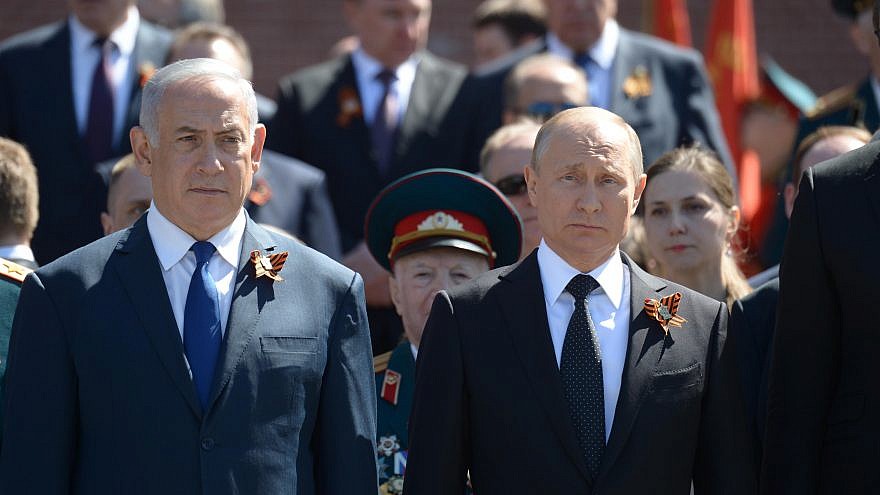With the 2018 FIFA World Cup soccer tournament kicking off on Thursday, host nation Russia has made it clear that it expects Israel and other Middle Eastern states to avoid an escalation in the Syrian civil war during the month-long championship, Israel Hayom has learned.
The fighting in Syria has subsided somewhat recently, following the retaking by Syrian President Bashar Assad’s regime of almost all of the rebel-held enclaves, particularly in the Damascus area.
Several weeks ago, Israeli forces obliterated dozens of Iranian targets in response to a rocket attack on Israeli territory. According to foreign media sources, Israel has also executed a number of strikes aimed at thwarting arms shipments to Hezbollah, Iran’s proxy in Lebanon.
The combustible situation has Russian authorities worried that a conflagration in Syria may overshadow the World Cup, which takes place every four years, and this year is being held in Russia for the first time. Russian President Vladimir Putin considers the event a personal project and a source of patriotic pride for his country.
Though the requests conveyed to Israel and other countries do not specifically make the connection between the soccer tournament and the ongoing civil war, the underlying message is clear.
However, it is unclear to what degree Iran will heed the Russian request. If Iran continues to bolster its presence in Syria, this will almost certainly compel Israel to act.
Israel has maintained a deconfliction channel with the Russian military, keeping Moscow updated on its actions in Syria. Presumably, Israel will be even more diligent in coordinating with Russia the coming weeks.
The Russian request also places constraints on Assad, who is dependent on Russia in his fight against the rebels. Assad has been preparing for a massive onslaught against rebel enclaves in southern Syria, near the border with Israel. Israel has said it would agree to Assad returning there as long as Iranian militias remain away from the border. Jordan has said it would welcome Assad’s return to maintain stability in the area.
In the wake of Russia’s request, Assad will have to decide whether to go ahead with his offensive. Whatever he decides, he is likely to coordinate any actions with Moscow, as he has done since Russia joined the fighting in 2015.
Russia’s massive contribution, particularly with airstrikes against the rebels, has been critical to Assad’s success and his ability to regain areas lost early in the war.

























